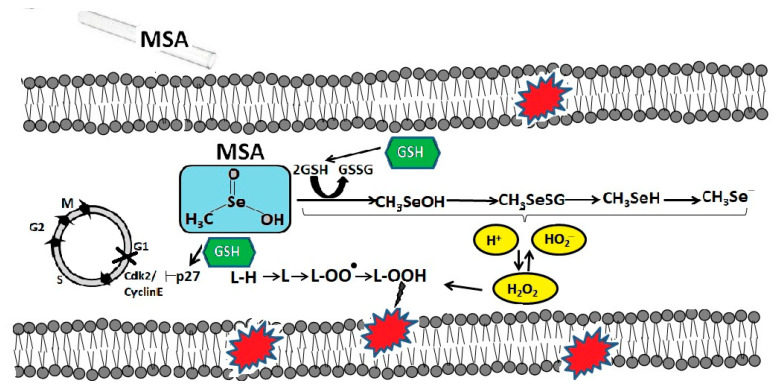Figure 2.
The molecular mechanisms of MSA cytotoxicity mediated by intracellular glutathione in cancer cells. Reduced glutathione (GSH), present in cancer cells in large amounts, is extremely important for the metabolism of MSA. In the process of converting MSA into methylselenol, glutathione is oxidized (GSSG) and free radicals, in particular, hydrogen peroxide, increase, which are the cause of the oxidative degradation of membrane lipids. In addition, MSA, through the oxidation of GSH, contributes to the G1 arrest of the cell cycle by suppressing the activity of cyclin E1 and activating the cyclin-dependent kinase 2 inhibitor p27Kip1.

